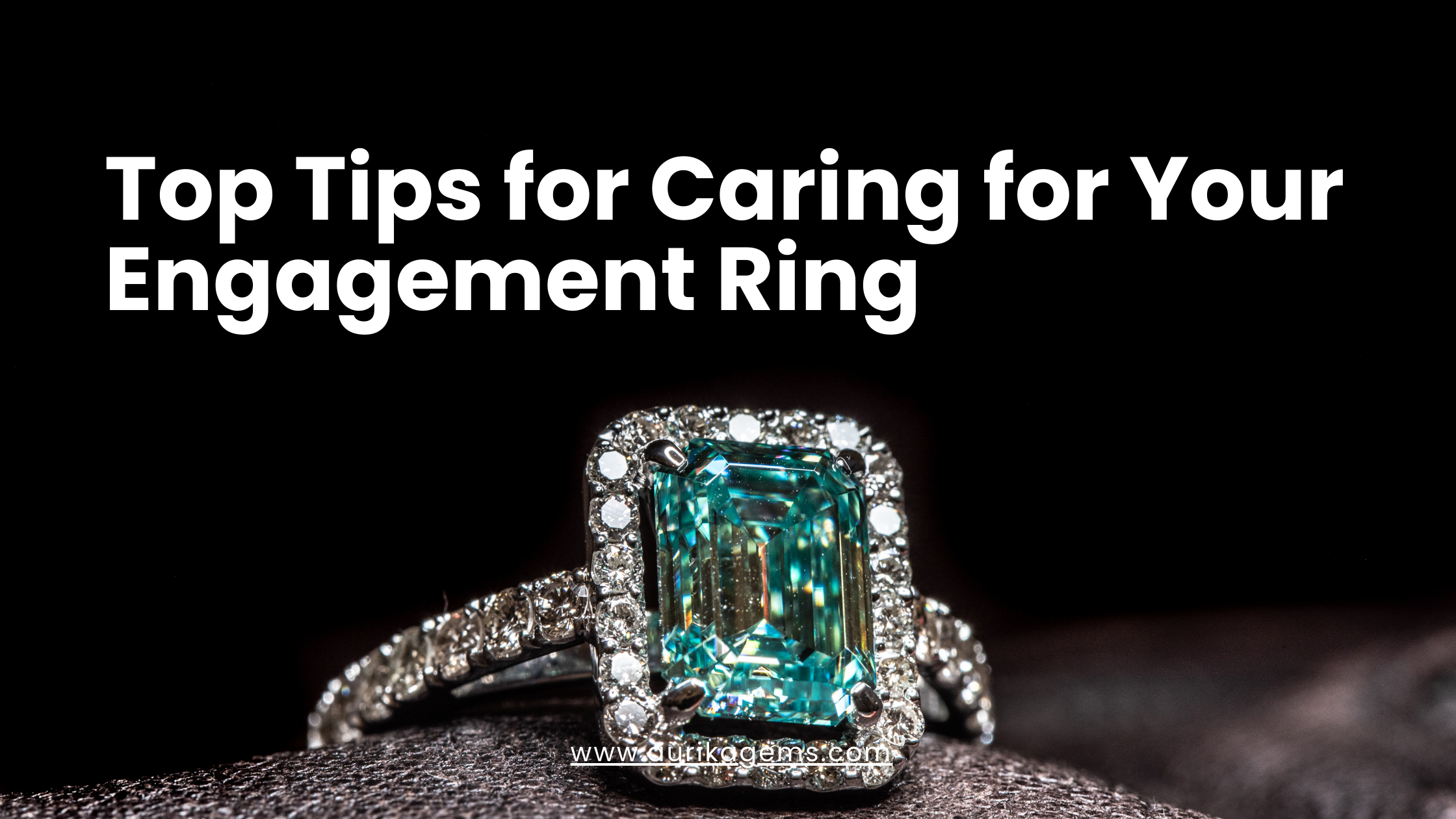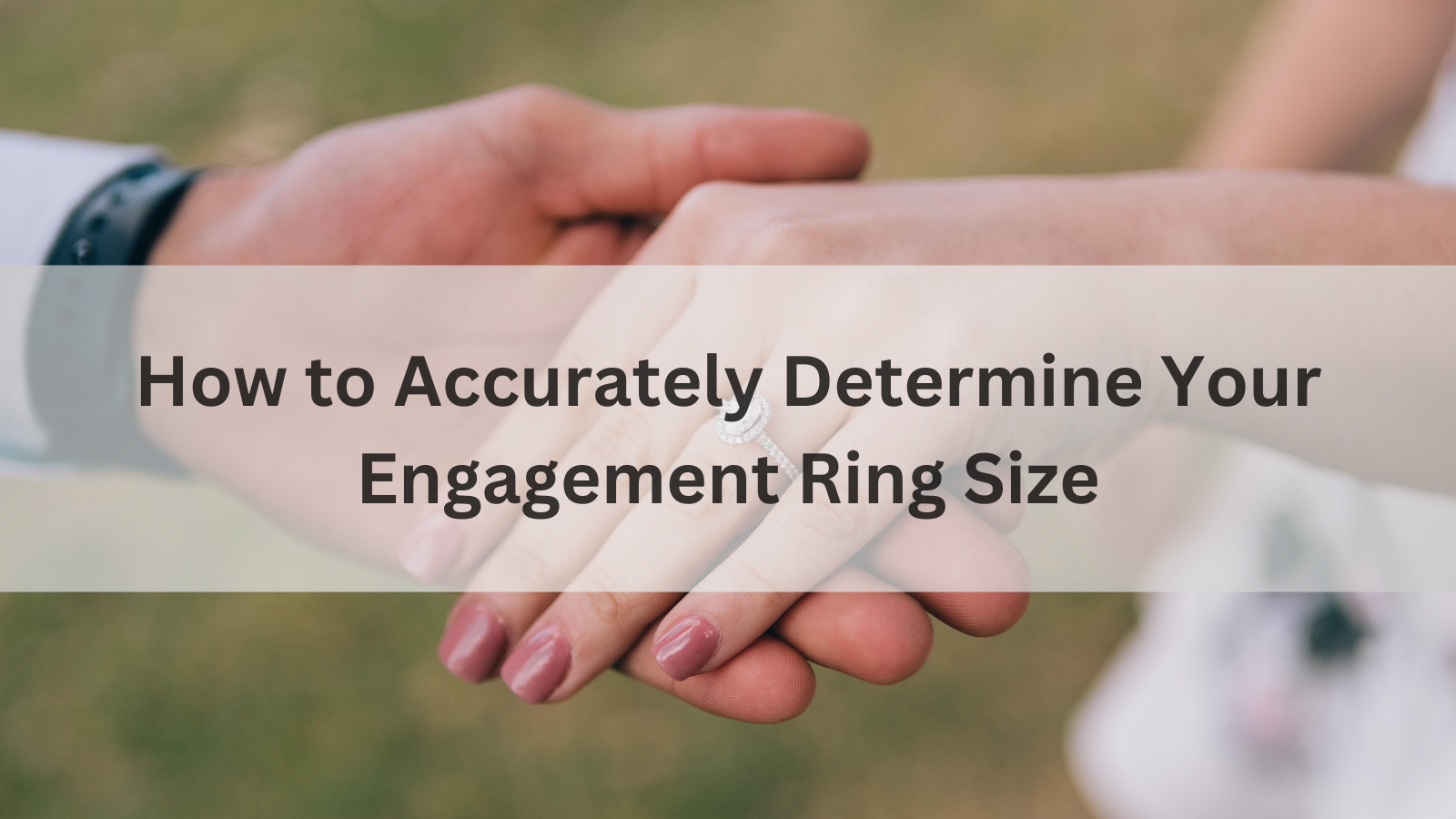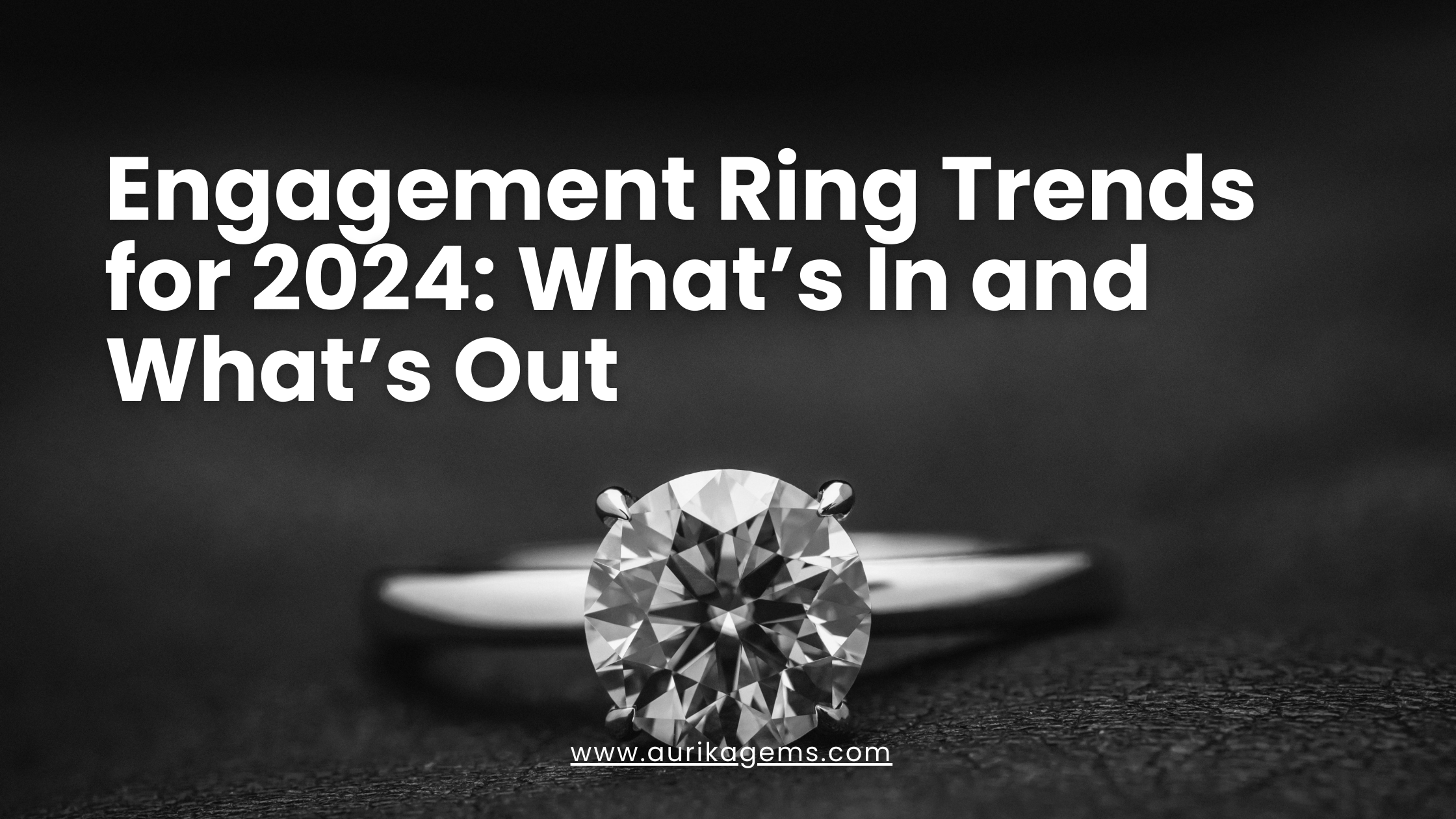
Top Tips for Caring for Your Engagement Ring
Your engagement ring is more than just a piece of jewelry; it’s a symbol of your love and commitment. Whether it's a dazzling diamond or a precious gemstone, keeping your ring looking its best requires proper care and attention. From everyday maintenance to professional cleanings, this guide will walk you through everything you need to know to keep your engagement ring in pristine condition for years to come.
1. Clean Your Engagement Ring Regularly
One of the simplest and most effective ways to keep your ring sparkling is by cleaning it regularly. Over time, oils, dirt, and everyday wear can cause the stone and setting to lose their shine.
Best Cleaning Methods for Different Rings
- Diamond Rings: Use a soft toothbrush, warm water, and mild dish soap to gently clean your diamond ring. Avoid using harsh chemicals, as they can damage the metal or any accent stones.
- Gemstone Rings: Different gemstones require specific cleaning methods. For example, pearls and opals are softer and need special care. Clean them with a soft cloth and avoid submerging them in water.
- Lab-Grown Diamonds: Just like natural diamonds, lab-grown diamonds can be cleaned with mild dish soap and a soft brush. The same rules apply to keeping them away from harsh chemicals.
Professional Cleaning
While at-home cleaning is important, it's also recommended to get your engagement ring professionally cleaned once or twice a year. Professional jewelers use specialized equipment like ultrasonic cleaners and steamers that can reach areas you can't at home.
2. Avoid Wearing Your Ring During Certain Activities
There are times when it’s best to remove your engagement ring to prevent damage. Certain activities can expose your ring to unnecessary risk, which can result in scratching, losing stones, or bending the band.
When to Avoid Wearing Your Ring
- Exercise and Sports: Activities like weightlifting, yoga, or any contact sports can put your ring at risk. The pressure from weights or sudden impact can damage the setting or scratch the surface.
- Swimming: Both chlorine in pools and saltwater can cause discoloration and tarnishing to your ring’s metal. Additionally, cold water can cause your fingers to shrink, making it easier for the ring to slip off.
- Household Chores: Chemicals from cleaning products can damage your ring. When doing chores like washing dishes, laundry, or gardening, it’s best to take off your ring.
- Beauty and Personal Care: Lotions, perfumes, and hairsprays can leave a film on your ring that dulls its shine. Make sure to remove your ring before applying any beauty products.
3. Store Your Ring Safely When Not Wearing It
Proper storage is key to keeping your engagement ring safe and free from scratches. When you’re not wearing it, store it in a soft, padded jewelry box to avoid contact with other jewelry that could cause scratches or damage.
Storage Tips
- Individual Slots: If possible, use a jewelry box with individual slots to store your ring separately from other pieces. This prevents it from coming into contact with metals and stones that could scratch it.
- Traveling with Your Ring: When traveling, keep your ring in a small travel case or pouch to avoid it getting lost or damaged. Consider leaving it in a secure place when visiting destinations where losing it is a risk.
- Ring Dishes: Place small ring dishes around your home—such as near the kitchen sink or bathroom vanity—so you have a safe spot to place your ring when you need to take it off.
4. Insure Your Engagement Ring
Accidents can happen, and the last thing you want is to lose or damage your engagement ring without any protection. Insuring your ring is one of the best ways to ensure peace of mind.
How to Insure Your Ring
- Jewelry-Specific Insurance: Many insurance companies offer policies that specifically cover fine jewelry. These policies can protect against theft, loss, or damage.
- Appraisal: In order to insure your ring, you’ll need to get it appraised by a professional. The appraiser will determine the value of your ring, which will dictate the cost of your insurance.
- Document Everything: Keep detailed records of your ring’s purchase, including receipts, certificates, and appraisals. This will be important if you ever need to file a claim.
5. Get Regular Check-Ups and Maintenance
Just like any valuable item, your engagement ring needs regular maintenance to keep it in top shape. Periodic check-ups can prevent minor issues from turning into major problems, such as loose prongs or damaged settings.
How Often Should You Get It Checked?
It’s recommended to take your ring to a jeweler every six months to a year for a thorough inspection. The jeweler will check for any signs of wear and tear, such as loose stones, bent prongs, or thinning metal.
Resizing
If your ring no longer fits properly due to weight loss or gain, it’s important to have it resized by a professional. Wearing a ring that’s too tight or too loose increases the risk of damage or loss.
6. Be Mindful of Temperature and Environmental Changes
Certain metals and stones can be sensitive to extreme temperature changes. For example, going from hot to cold environments can cause metal to expand and contract, which may loosen the setting over time.
Protecting Against Environmental Damage
- Avoid Extreme Heat: Prolonged exposure to high temperatures can damage some gemstones and affect the metal of the ring. If you’re working in a hot environment, consider removing your ring temporarily.
- Cold Weather: In cold environments, your fingers tend to shrink, making it easier for your ring to slip off. Take extra precautions in these conditions, and consider wearing a ring guard if necessary.
7. Be Cautious with Ultrasonic Cleaners
While ultrasonic cleaners are popular for cleaning jewelry, they’re not always the best option for every engagement ring. Ultrasonic cleaners use high-frequency sound waves to dislodge dirt and grime, but they can also loosen stones if the setting is not secure.
When to Avoid Ultrasonic Cleaners
- Fragile Gemstones: If your ring contains delicate stones like opals or emeralds, it’s best to avoid using ultrasonic cleaners as they can crack or damage the stones.
- Vintage Rings: Antique or vintage rings may have fragile settings that can be damaged by ultrasonic cleaners. Instead, opt for gentle hand-cleaning methods.
8. Know When to Take It Off Permanently
There may come a time when wearing your engagement ring every day becomes impractical or too risky. If you work in a profession that involves heavy machinery, chemicals, or medical equipment, wearing your ring might pose a hazard.
Professionals to Consider
- Healthcare Workers: Medical professionals who frequently wash their hands or use hand sanitizer may find that chemicals and constant wear cause their rings to tarnish or degrade over time.
- Chefs and Food Industry Workers: Working with food often requires taking off jewelry for hygiene reasons. Wearing gloves while cooking can trap bacteria under the ring and may damage delicate stones.
- Construction or Manual Labor: If you work with tools or heavy equipment, it's best to remove your ring to prevent accidental damage or injury.
9. Use Jewelry Insurance with a Warranty Program
Many jewelry stores offer warranty programs that cover routine maintenance, such as tightening prongs or cleaning. These programs can extend the life of your ring and provide added peace of mind.
What to Look for in a Warranty Program
- Comprehensive Coverage: Make sure the warranty covers regular inspections, cleanings, and repairs. This will ensure your ring stays in optimal condition.
- Terms and Conditions: Be aware of any conditions tied to the warranty, such as needing to bring the ring in for inspections every six months. Failing to comply with these conditions could void your warranty.
10. Avoid DIY Repairs
It might be tempting to try and fix a loose stone or bent prong yourself, but this can often lead to further damage. Jewelry repairs should always be left to professionals who have the tools and expertise to fix your ring without causing additional harm.
When to Seek Professional Help
- Loose Stones: If you notice that one of your stones is loose, take it to a jeweler immediately. A loose stone can easily fall out and be lost, which could be costly to replace.
- Bent or Broken Prongs: Prongs hold your stone in place, so if you see one that’s bent or broken, it’s essential to get it repaired as soon as possible to avoid losing your stone.
- Introduction to Engagement Rings
- Types of Engagement Rings
- Choosing the Right Metal
- Understanding Diamond Shapes and Cuts
- The 4 Cs of Diamonds
- Custom vs. Ready-Made Engagement Rings
- How to Determine Your Ring Size
- Setting a Budget
- Ethical and Sustainable Options
Conclusion
Your engagement ring is a precious investment, both emotionally and financially. Taking proper care of it will ensure it continues to shine for years to come. From regular cleaning and professional maintenance to knowing when to take it off, following these top tips will help you protect and preserve your engagement ring for a lifetime of memories.
By implementing these practices, not only will you maintain your ring's beauty, but you’ll also keep it safe from everyday risks, ensuring it remains a symbol of love that lasts forever.


